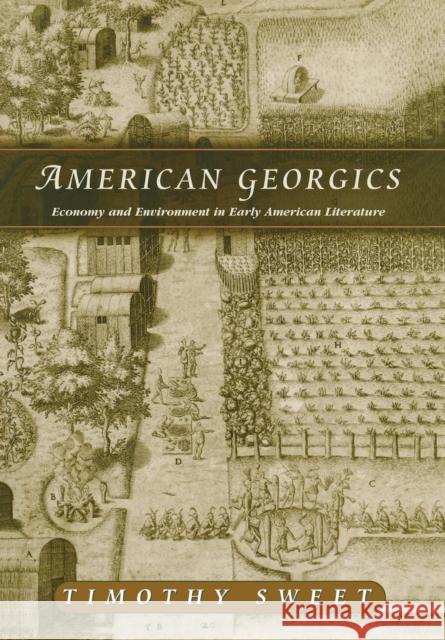American Georgics: Economy and Environment in Early American Literature » książka
American Georgics: Economy and Environment in Early American Literature
ISBN-13: 9780812236378 / Angielski / Twarda / 2002 / 232 str.
American Georgics Economy and Environment in American Literature, 1580-1864 Timothy Sweet "Sweet offers a wide-ranging examination of the agricultural work of North American men and women as seen through the lens of literature. . . . Sweet's greatest achievement is his ability to integrate hundreds of years of discourse about the North American continent into a cohesive narrative of evolving perceptions of environment and humankind's role in shaping it."--American Literature "Thoughtful, critically intelligent, and well-informed."--Lawrence Buell, Harvard University In classical terms the georgic celebrates the working landscape, cultivated to become fruitful and prosperous, in contrast to the idealized or fanciful landscapes of the pastoral. Arguing that economic considerations must become central to any understanding of the human community's engagement with the natural environment, Timothy Sweet identifies a distinct literary mode he calls the American georgic. Offering a fresh approach to ecocritical and environmentally-oriented literary studies, Sweet traces the history of the American georgic from its origins in late sixteenth-century English literature promoting the colonization of the Americas through the mid-nineteenth century, ending with George Perkins Marsh's Man and Nature (1864), the foundational text in the conservationist movement. Timothy Sweet is Professor of English at West Virginia University. He is the author also of Traces of War: Poetry, Photography, and the Crisis of the Union. 2001 232 pages 6 x 9 ISBN 978-0-8122-3637-8 Cloth $69.95s 45.50 ISBN 978-0-8122-0318-9 Ebook $69.95s 45.50 World Rights Literature, Cultural Studies Short copy: American Georgics takes as its primary problem the question of the human place in nature. By extending our understanding of what counts as environmental literature back before Thoreau, Sweet shows that early texts, while not necessarily "green" in contemporary terms, can offer important insights into our relationship to the environment.











